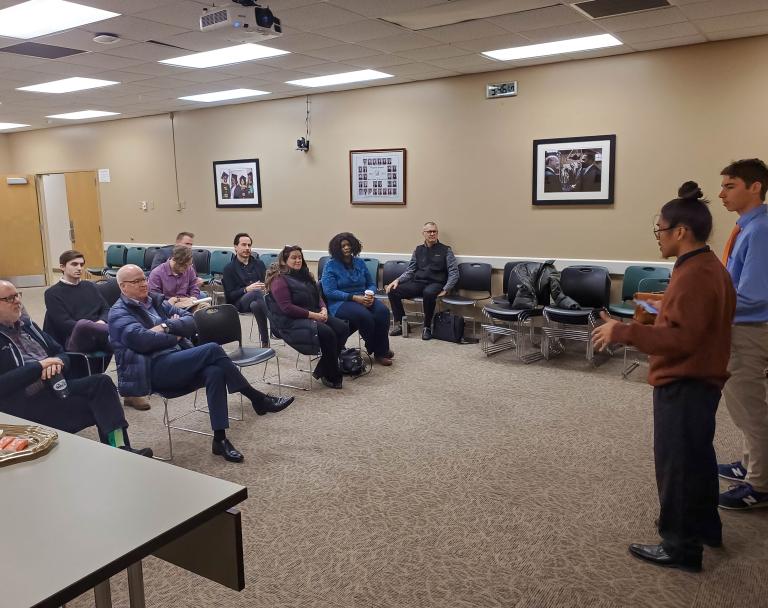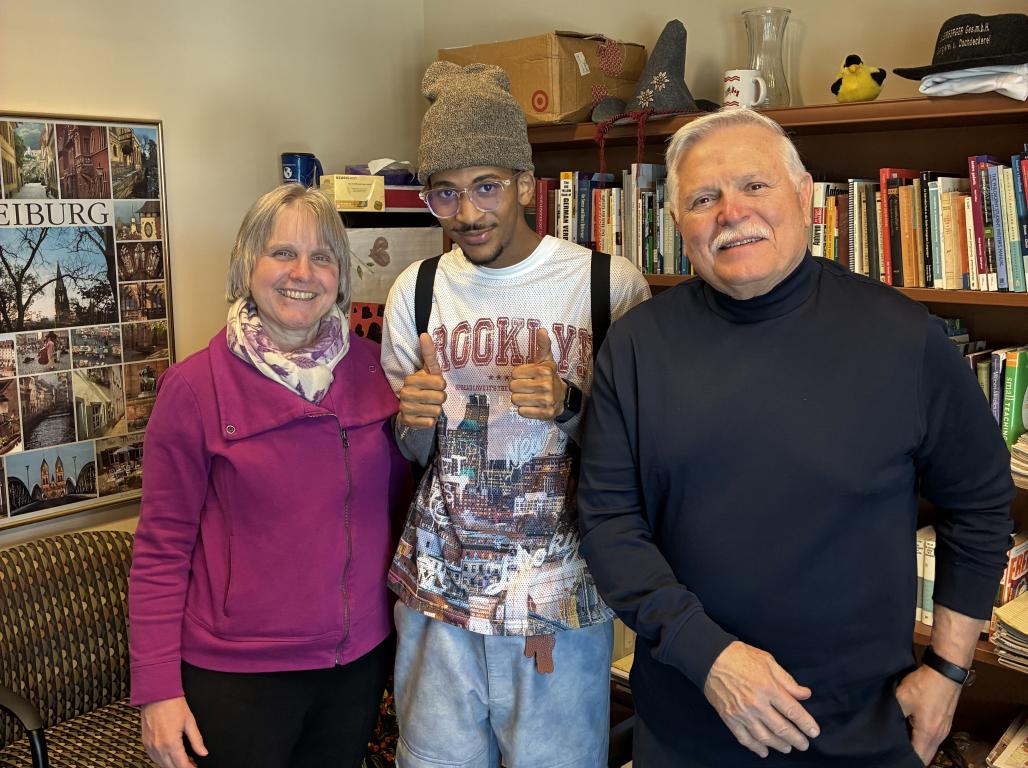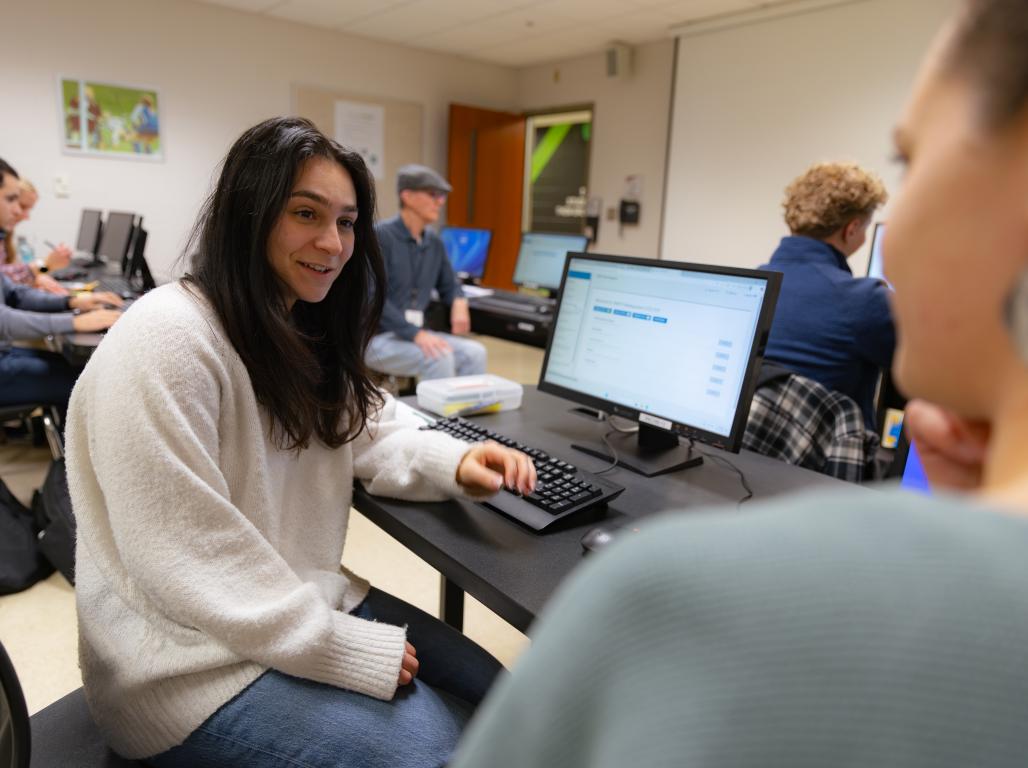Dr. Madhavi Reddi, Assistant Professor of Communication, makes it a point to incorporate community-based learning into the courses she teaches. The Fall 2023 semester was the first time she taught CM327 Persuasion, and she was looking for an opportunity for students to put theory into practice while engaging with the local community.
A textbook provided her with an idea—conduct a mock city hall. The assignment for teams of students was to apply the techniques of persuasion discussed in the course to an appeal in a mock city hall setting. The teams each presented a two- to three-minute appeal on an assigned issue to local and campus community members.
To help students get started, Dr. Reddi brought Dr. Vinny Cannizzaro, former director of The Arthur J. Glatfelter Institute for Public Policy at York College, to speak about topics or issues of concern in the City of York. These included lead content in water, zoning, tiny homes, mixed-income housing, building community centers, and more.
“He explained what they are, provided context and examples, and provided students with a formula for a persuasive appeal in a city hall setting,” Dr. Reddi said. “That included nonverbal and verbal cues, semantics, and more. This approach was a culmination of everything they had been learning inserted into the real world.”
Students selected a topic of interest and created an argument for why a policy surrounding that topic needed to be changed. “My partner and I chose the issue of tiny homes being banned in York County,” said Alyssa Racosky (Baltimore, MD), a senior Integrated Marketing Communications major. “Our argument was to update York zoning laws to allow tiny homes to the area. Typically, in York County, a house cannot be less than 700 square feet. Tiny homes are usually around 500 square feet or less, making them illegal.”
Alyssa and her partner argued the benefits of tiny homes as well. “Tiny homes are a cheaper option for many couples or individuals to live in,” she said. “They offer an alternative for younger couples just starting out who cannot afford expensive rent or put a down payment on a home. Additionally, one of the main reasons people go tiny is their desire to create a more sustainable lifestyle. These tiny houses have been proven to be energy-efficient because they are so small and require much less energy consumption.”
Student presenters received immediate feedback, including questions from the audience, which included representatives from the Stable Housing Collaborative, the City of York, and Habitat for Humanity.
“Speaking in front of others makes some students a little nervous,” Dr. Reddi said, “but I try to do that in every class, try to provide some interaction with people who are not me.”
Junior Chase Hellwig (Pylesville, MD) and his partner presented on lead exposure, specifically in plumbing, in the City of York.
“We received positive feedback, and we felt we answered the tough questions proposed by the audience sufficiently,” said Chase. “I do think this style of project was a good way to teach the course, mainly because it puts theory taught in the classroom into practice.”
The mock city hall went well, according to Reddi, but there is one element that she would change in the future. “Students were presenting research info from the Internet, nothing directly from the people in the community,” she said. “In the future, I would allow more time to have students meet with community residents, as in a typical town hall.”
Nonetheless, students were thankful for the opportunity. “I often find that when you are able to apply what you’ve learned in a very real setting, it helps drive the point home,” Dr. Reddi said.
Alyssa agrees. “This project aspect of the course allowed me to not only learn but also apply the material to a real-life matter,” she said. “Throughout the semester, we learned about different persuasion techniques and were given the chance to put them to use with this project. We had to determine how to engage our audience and motivate them to care about our chosen issue.
“I believe project-based learning goes beyond the basic classroom experience and provides alternate value. Classes like Persuasion, accompanied by the encouraging teaching styles practiced by Dr. Reddi, push students to apply what they have learned and conquer real-world situations.”





